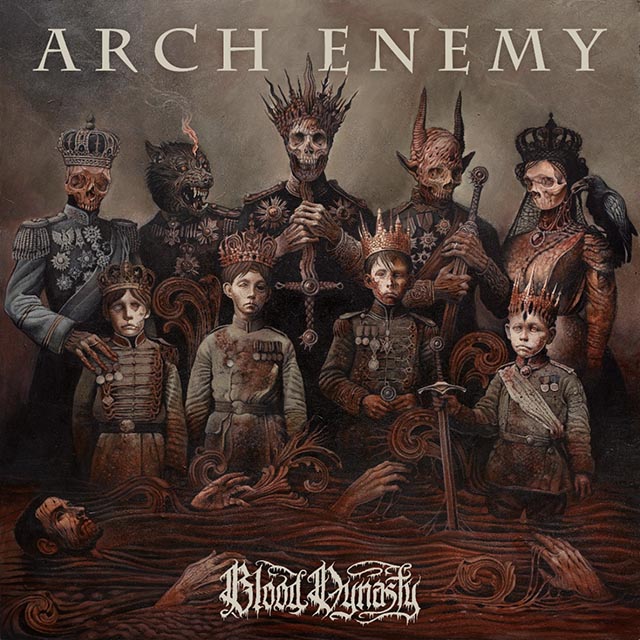 Last week, many in the metal community had strong reactions towards Dr. Katrina McFerran’s recent study. At first glance of the University Of Melbourne’s posting, and other articles about the study, it appeared that Dr. McFerran was implying that youth at risk of depression are more likely to listen to heavy metal music. However, as many readers pointed out, there was more to the study than what the abstract had implied. With that in mind, we decided to let Dr. McFerran better explain what her study was actually trying to find. Dr. McFerran, a senior lecturer in music therapy and editor of the Australian Journal of Music Therapy, was kind enough to share the following:
Last week, many in the metal community had strong reactions towards Dr. Katrina McFerran’s recent study. At first glance of the University Of Melbourne’s posting, and other articles about the study, it appeared that Dr. McFerran was implying that youth at risk of depression are more likely to listen to heavy metal music. However, as many readers pointed out, there was more to the study than what the abstract had implied. With that in mind, we decided to let Dr. McFerran better explain what her study was actually trying to find. Dr. McFerran, a senior lecturer in music therapy and editor of the Australian Journal of Music Therapy, was kind enough to share the following:
Music is important, but it’s not magic. It can’t control your mind, although I think it can make a difference in your life. So why did so many people think that my study was saying ‘Metal music CAUSES mental illness’? It totally doesn’t. Music is not that powerful. And nor do all people who like metal music suffer from depression; although some do. In fact, studies bigger than mine show that the link between psychological distress and liking metal music is stronger than for any other type of music. Why is it so?
Well, it seems mind-blowingly obvious that if life feels intensely bad right now, there is little solace to be found in pop music. Metal music contains both emotion and power, sometimes wrapped up with some pretty awesome musical displays, so it isn’t rocket science to understand why people might turn to it. In my study of Australian teenagers, most people expressed a preference for metal, rock and hip-hop when they were feeling angry – it matched their mood. But what was most interesting was that metal-heads were significantly more loyal to their style – across all moods – whereas others were more eclectic in listening to different sounds to match different emotional states. That’s all good.
But what about the sub-group of young metal fans who were psychologically distressed and reported feeling WORSE after listening? That’s why my study hit the press – because we need to get a better understanding of why some young people, who are already distressed, might find their music listening makes them feel worse. Most people declare that music makes them feel better – it fulfills emotional needs, fosters social connections and is personally satisfying (North and Hargreaves). It revives us, entertains us, diverts us, provides strong sensations, clarity, understanding and solace (Saarakallio).
As a music therapist that works with teenagers, my job is to make sure that young people are getting the most out of their music. In theory, making music has a stronger relationship to health than listening does, so I encourage that – playing is related to flow, stronger social connections and the release of chemicals in the brain that create trust and promote bonding. But nothing is simple. Take for example going to a live concert – there’s so much action involved that it doesn’t make sense to suggest that it is only a listening experience. Or dancing in your room? Anyway, it’s complicated. And there is no doubt that listening can be good too, for all the reasons I quoted above.
So here’s my question: What about that group of young people who describe feeling worse? Do they feel worse because they’re connecting with complicated memories or feelings, but then feel better later because they’ve processed stuff (delayed gratification)? And if so, why did they still rate themselves as feeling worse when reflecting on that experience weeks later? Do people who are already feeling bad need to make themselves feel worse for some reason – we all like to wallow sometimes, but when you are struggling with depression, it’s a constant fight to try to move out of that state, so you don’t necessarily want to do something that makes recovery even tougher. What do you all think? Has music listening ever made you feel worse – and what conditions led to that? I’m obviously not saying that it’s all about the music – it’s about life being reflected in the music, emotions that are experienced in the world being heard in the music, and hope being found in the music when the world sucks. Life is complicated and music usually helps with that. But perhaps not always.
You can look at the following PDF to read Dr. McFerran’s study for yourself.






